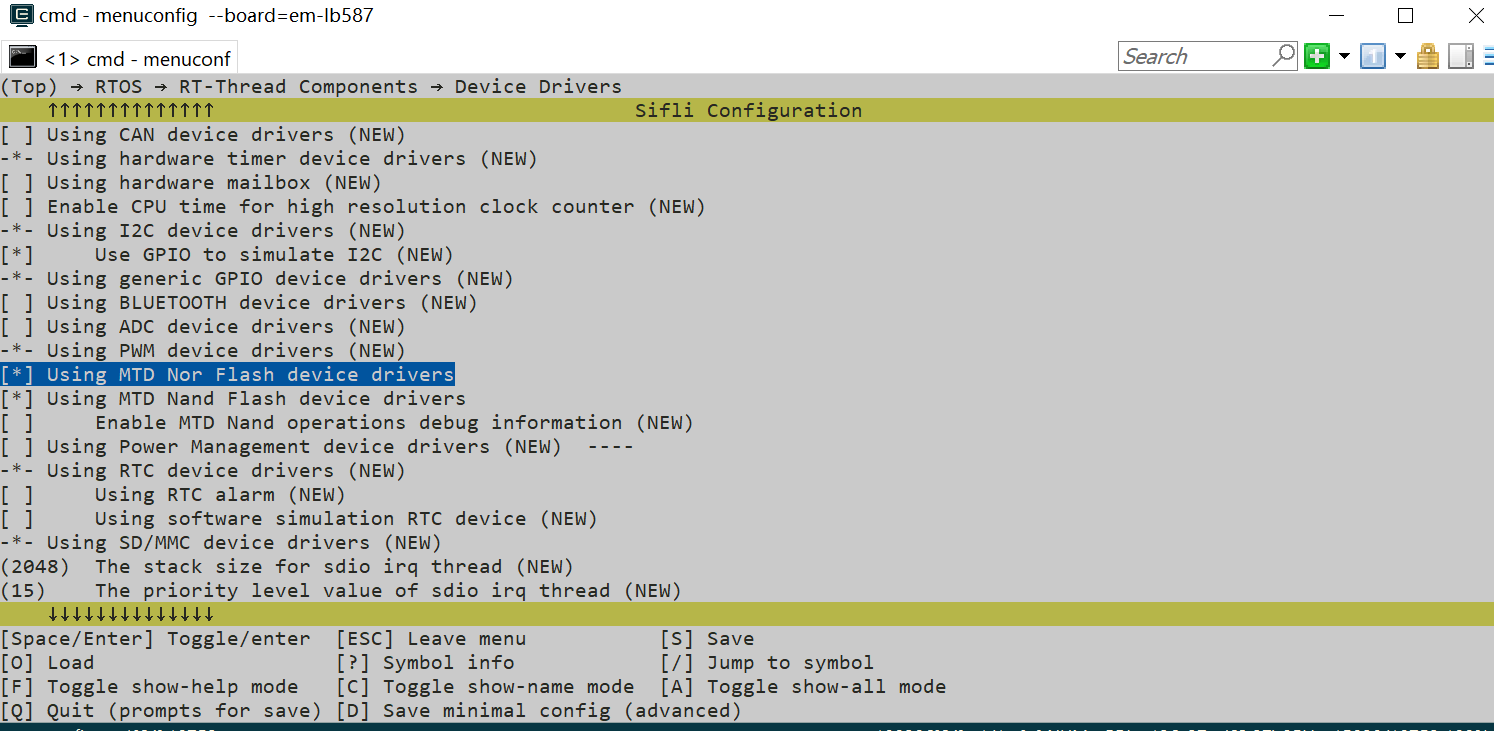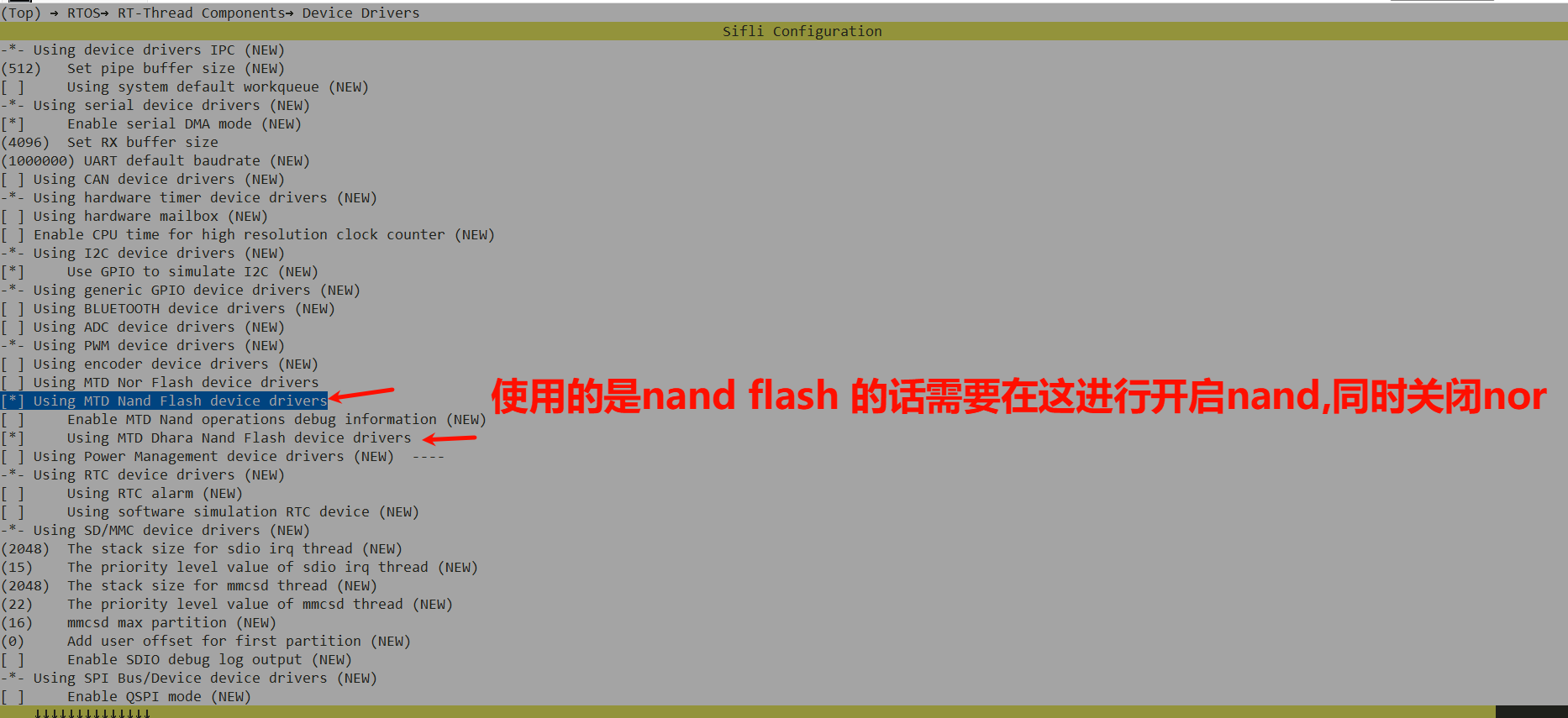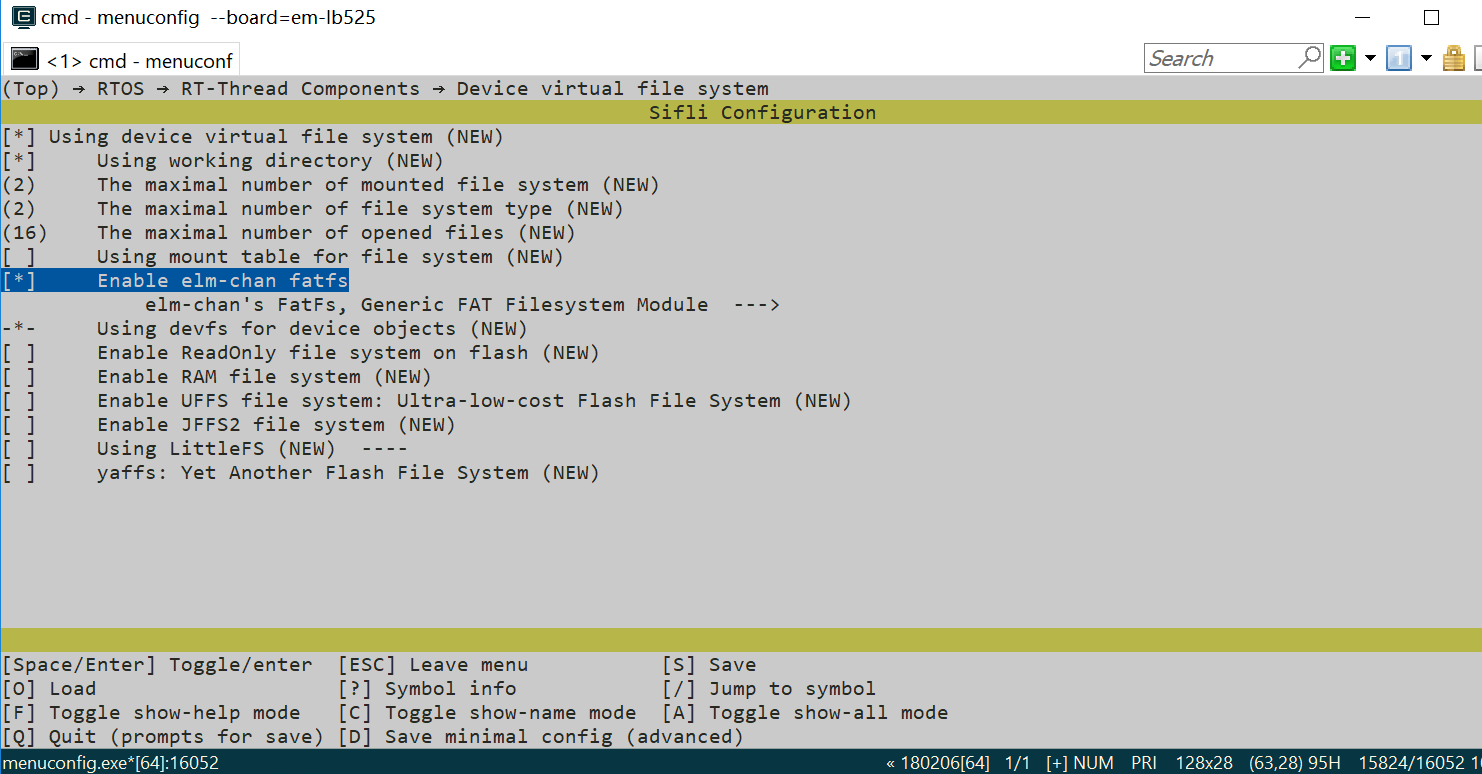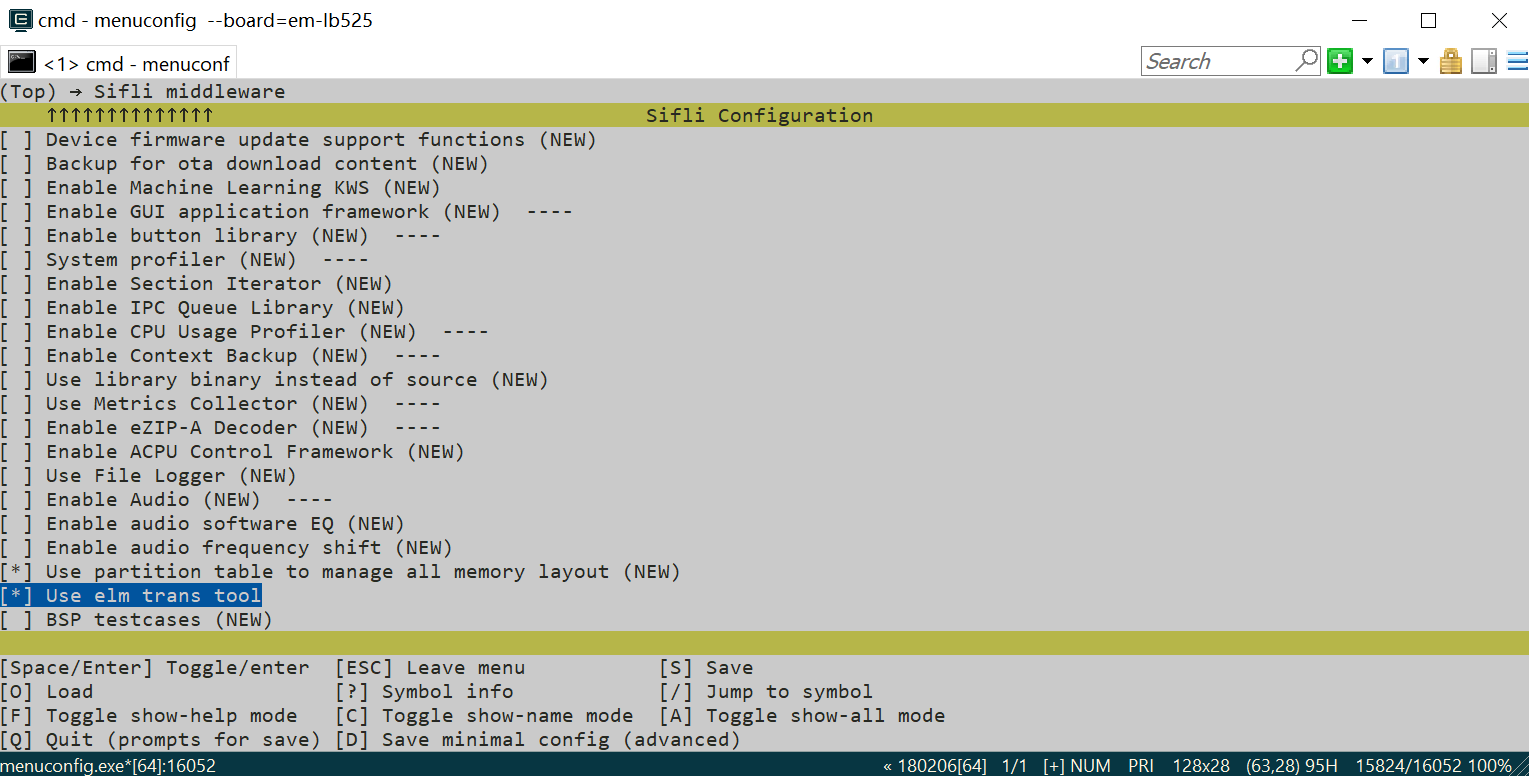ELM_RW Example
Overview
This example demonstrates file data read/write operations using ELM, paired with FsrwTool for visual file transfer.
Supported Development Boards
The example can run on the following development boards.
sf32lb52-lcd series
sf32lb56-lcd series
sf32lb58-lcd series
Note: Generally, examples run on the chip’s HCPU. “eh-lb563_v2” is equivalent to “eh-lb563_v2_hcpu”. If you want to run the example on LCPU, you can use “eh-lb563_v2_lcpu”. Currently, USB functionality is temporarily only supported on HCPU.
Example Directory Structure
The ELM_RW project contains 1 .c file (main.c). The tree structure below shows other files in the project directory.
|--README.md
|--src
| |--main.c
| |--Sconscript
|--project
|--Kconfig
|--Kconfig.proj
|--proj.conf
|--rtconfig.py
|--SConscript
|--SConstruct
Using the Example
Hardware Requirements
The prerequisite for running the example is having a development board that supports this example.
A USB data cable capable of data transmission.
Compilation and Programming
Following these steps, you can complete compilation and programming.
scons –board=sf32lb52-lcd_n16r8
.\build_sf32lb52-lcd_n16r8\uart_download.bat
Example Output Results Display
The results below show the logs after the example runs on the development board. System startup
mount /dev sucess
mount fs on flash to root success
Use help to check elm_rw file system command!
msh />
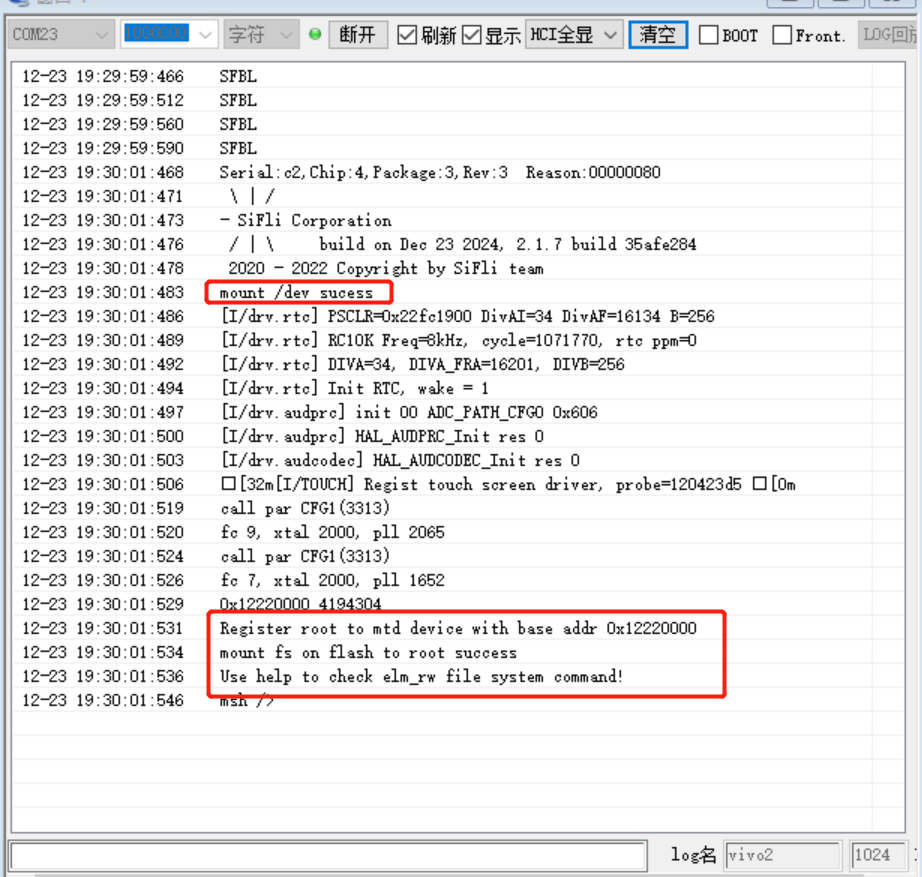
FsrwTool Interactive Usage
The tool is located in the tools\FsrwTool directory
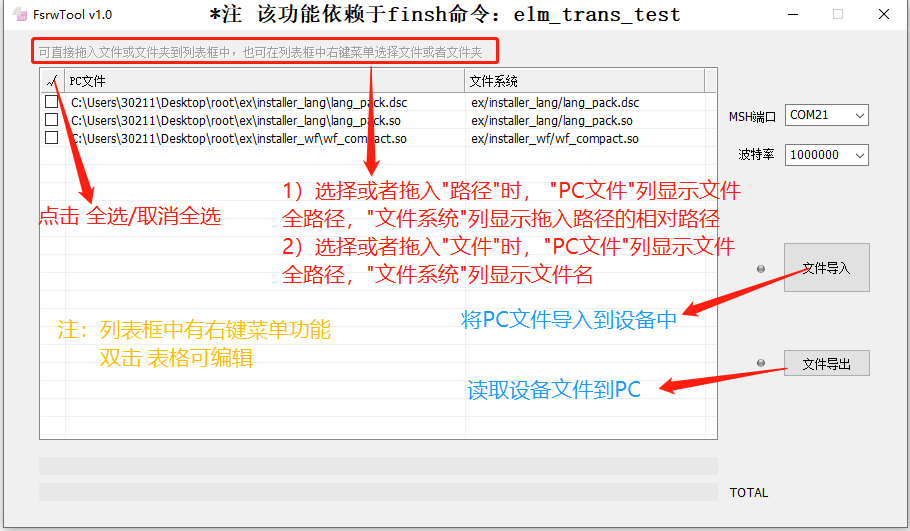
File Import:
We drag the files we want to import into the list box, click file import, and pay attention to serial port connection and baud rate configuration
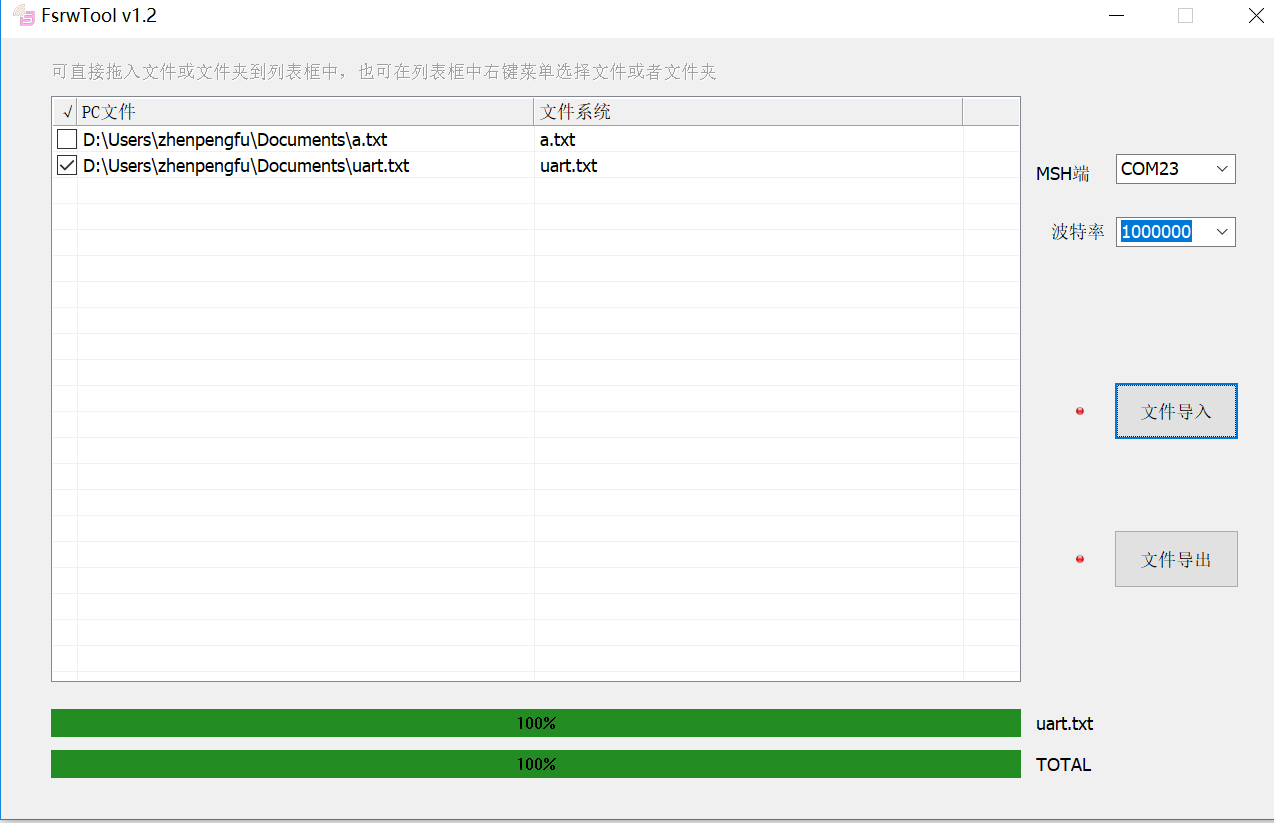
View Information of Imported Files:
Use the ls command to view file information. The a.txt in the example has no content so it shows 0 characters. Use the echo "123" a.txt command to add file content, where the content in quotes is what you want to add to the file

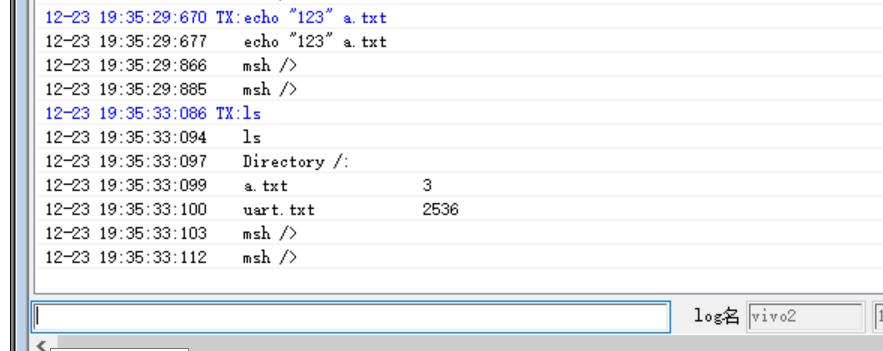
File Export:
FsrwTool file export does not move files from the development board but copies them out (the board will still retain the previously imported files)
You can see that after adding content, the opened a.txt file content has changed
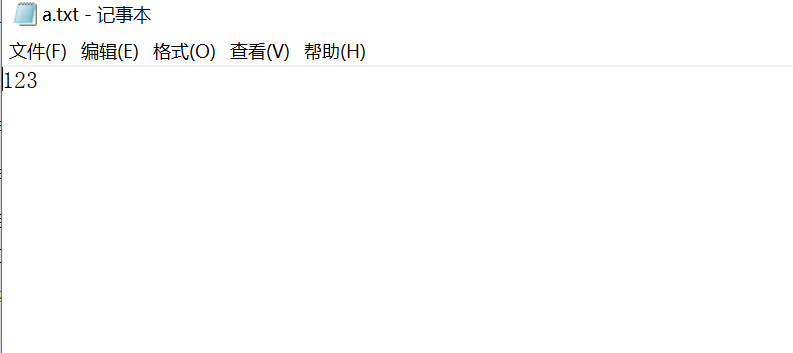
File Deletion:
Enter
rm fileto delete files imported to the development board
FsrwTool-log
File import log
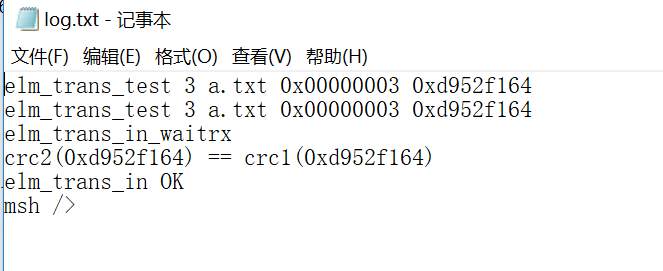
File content addition and export log
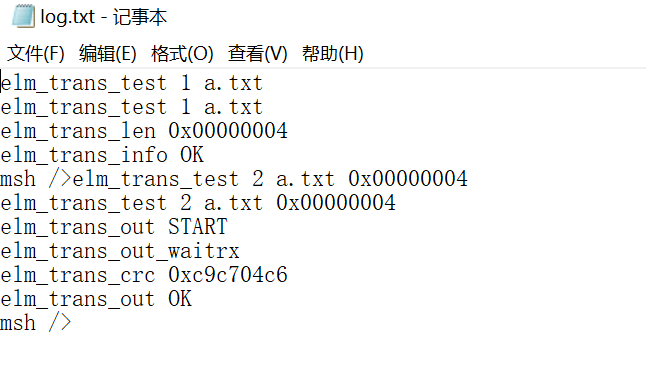
Troubleshooting
If the expected logs do not appear, troubleshooting can be performed from the following aspects:
Whether hardware connections are normal
Whether menuconfig configuration is set
Whether the development board flash is normal
Whether imported/exported files are empty or duplicated
